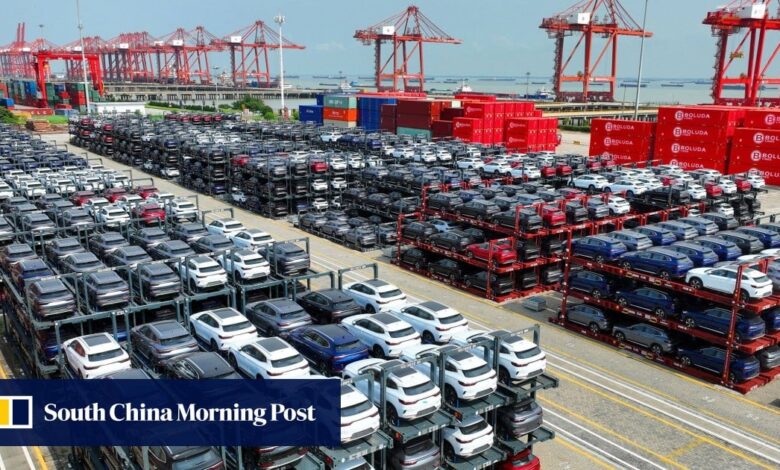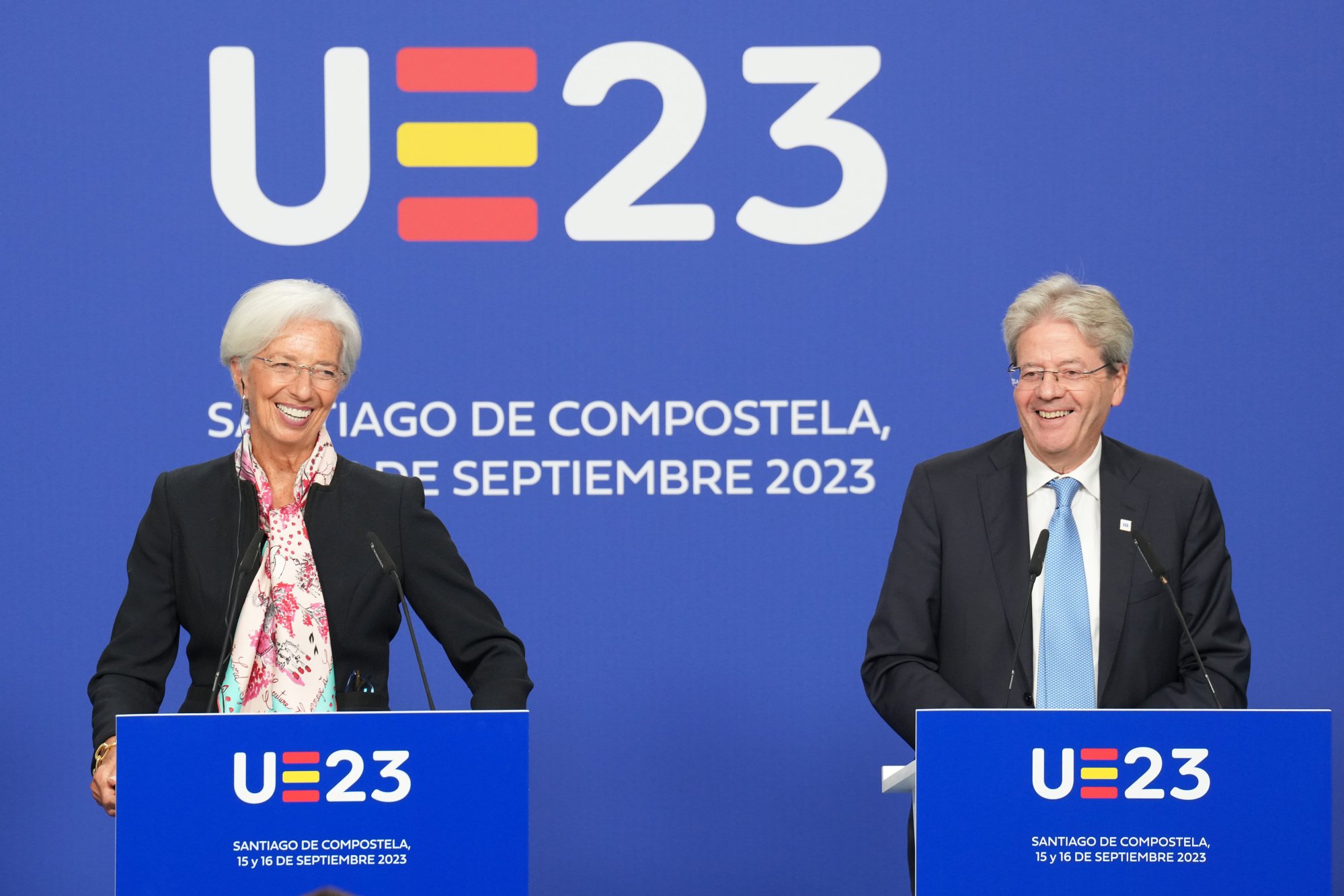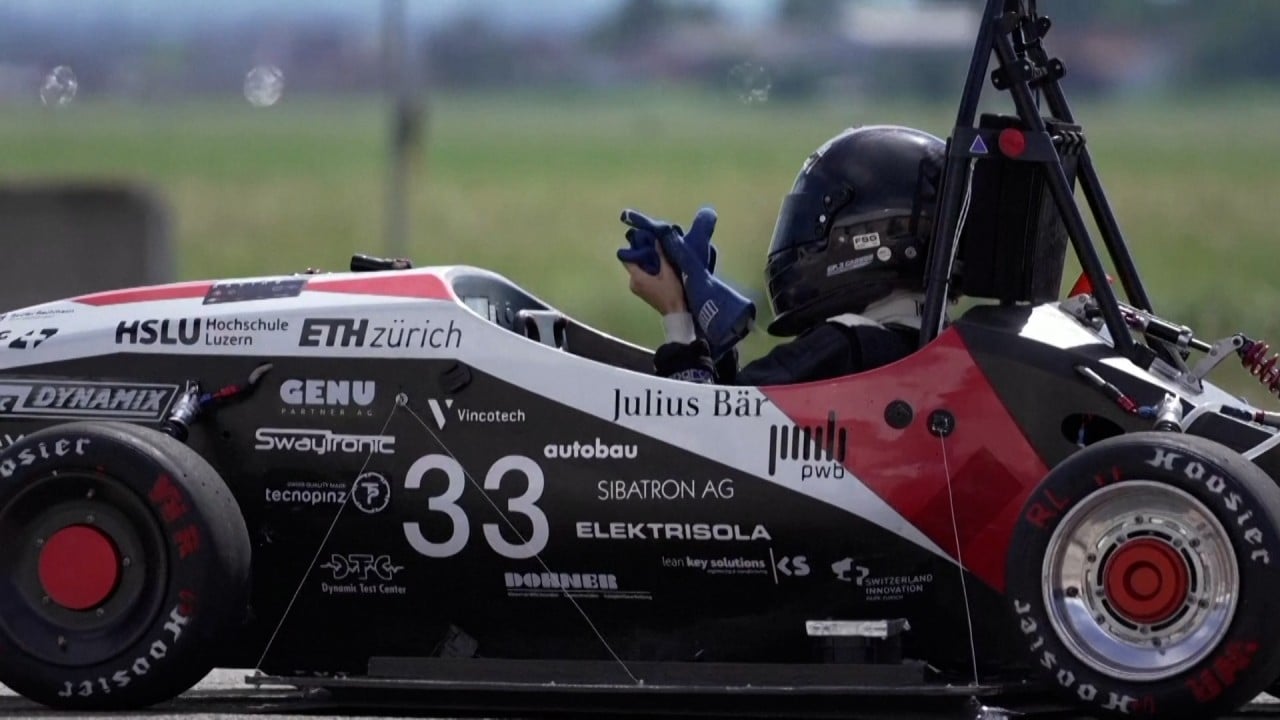EU unafraid of trade war with China, amid row over electric vehicle probe

[ad_1]
The EU insisted on Friday that its economy could survive any retaliation from China, after Beijing warned that Brussels’ probe into Chinese electric car subsidies would harm trade relations.
Europe put itself at risk of a trade war when European Commission president Ursula von der Leyen announced the anti-subsidy investigation on Wednesday, accusing China of keeping car prices “artificially low by huge state subsidies”.
The investigation could see the European Union try to protect European carmakers by imposing punitive tariffs on cars it believes are unfairly sold at a lower price.
The day after von der Leyen’s announcement, the Chinese commerce ministry hit back at the EU’s “naked protectionism”, and said the measures “will have a negative impact on China-EU economic and trade relations”.

Trade with China makes up around 2.5 per cent of euro zone GDP, but economy commissioner Paolo Gentiloni appeared to be unfazed by the warning when asked about whether the bloc’s economy could survive any tariffs.
“I’m confident, but we have to address this issue very seriously. I think there is no specific reason for retaliation but retaliation is always possible,” he said, before a meeting of euro zone finance ministers in the Spanish city of Santiago de Compostela.
The probe comes after France pushed Brussels to take stronger action to defend European industry against growing threats from China and the United States.
French Finance Minister Bruno Le Maire made a passionate defence of the EU’s strength as he rejected accusations of protectionism.
EU to probe ‘flood’ of cheap Chinese electric vehicles, sparking trade war fears
EU to probe ‘flood’ of cheap Chinese electric vehicles, sparking trade war fears
“We don’t have to fear any country. We are the EU … We are one of the most powerful economic continents,” he told Bloomberg TV later on Friday.
“We are not here to trigger any kind of trade war,” he said, adding: “It has nothing to do with protectionism.”
“It’s good news that Europe realises the necessity to defend its economic interests,” Le Maire said, pointing to United States and China acting to protect their economies.
Germany, one of the world’s biggest carmakers, is more reticent since its large, well-known brands are more exposed to the Chinese market than French manufacturers.

Although Berlin had concerns before the announcement, German Finance Minister Christian Lindner backed the probe in comments on Friday.
“If there are concerns that it is not fair then it needs to be looked at. World trade is based on rules and [they] of course also apply to electric vehicles,” he said.
Gentiloni acknowledged that the level of trade with China “is differentiated among member states”.
China represents the largest global market for major German car brands such as Volkswagen, Audi, Mercedes and BMW. It is also the main destination for French luxury giants LVMH, Kering and Hermes.
Why Chinese electric vehicle brands could ‘take a lead’ in Africa
Why Chinese electric vehicle brands could ‘take a lead’ in Africa
Spanish Economy Minister Nadia Calvino insisted the EU was “a world trade superpower”, and fervently backed the commission’s actions against China.
“I am absolutely convinced that the European Commission will continue to drive a trade policy on the basis of an open rules-based trade framework,” she said.
Experts believe Chinese cars undercut European competitors by around 20 per cent, and Brussels believes this may be due to illegal practices but Beijing argues its industry is reaping the benefits of investment.
In the race to produce more clean tech, the EU is seeking to avoid its past mistakes.
When Russia invaded Ukraine last year, the bloc scrambled to find alternative energy sources and has poured billions of euros into bringing production closer to home.
This year von der Leyen has spearheaded multiple plans, including regulation, to advance the green transition and secure Europe’s critical raw materials supply.
The EU this year also agreed a deal for more chip production in Europe to produce the necessary components for electrical goods.
But Brussels also faces challenges from its ally across the Atlantic.
Last year, the United States passed the Inflation Reduction Act, which directs some US$370 billion in subsidies towards America’s energy transition, including tax breaks for US-made electric vehicles.
[ad_2]
Source link






